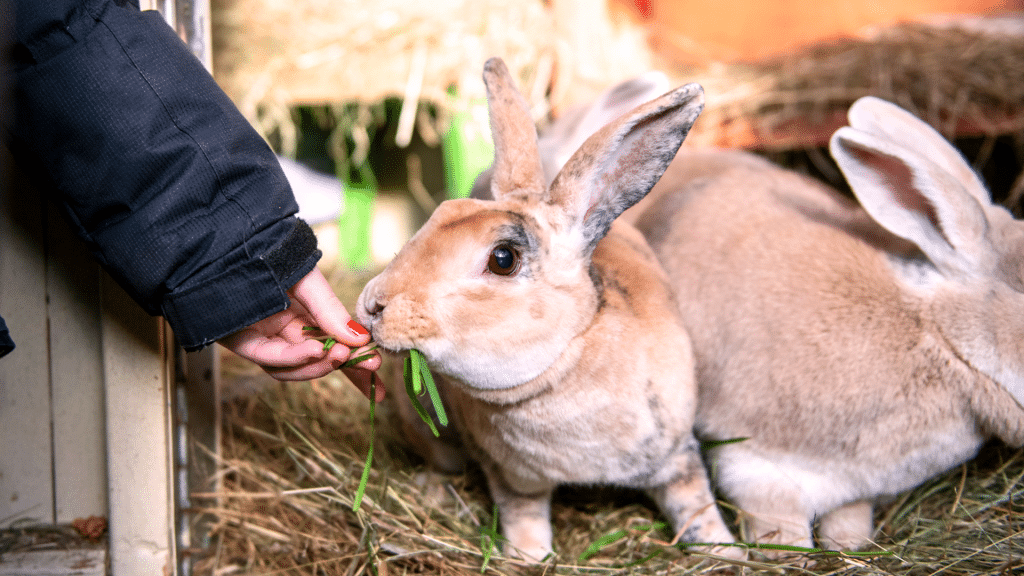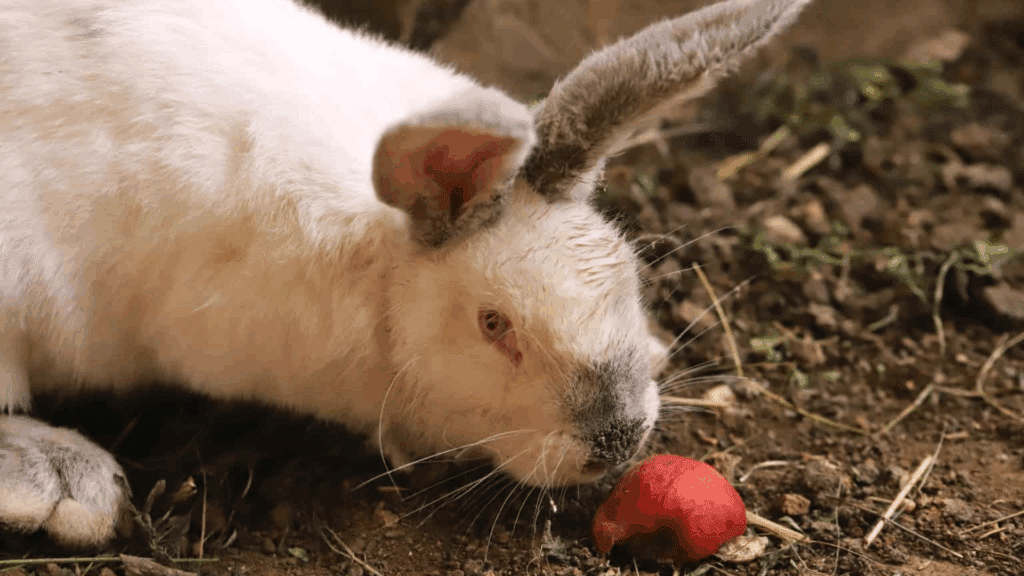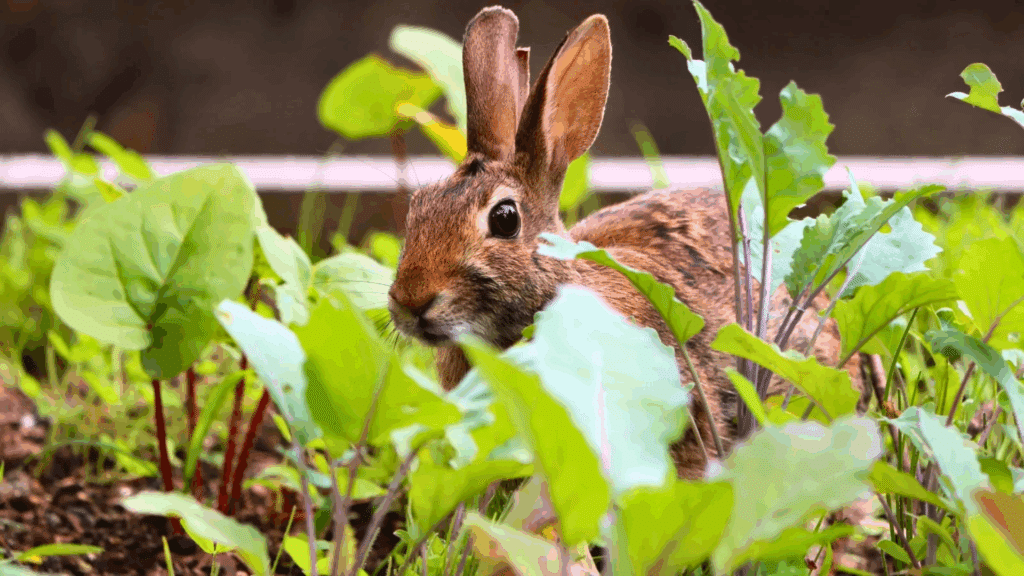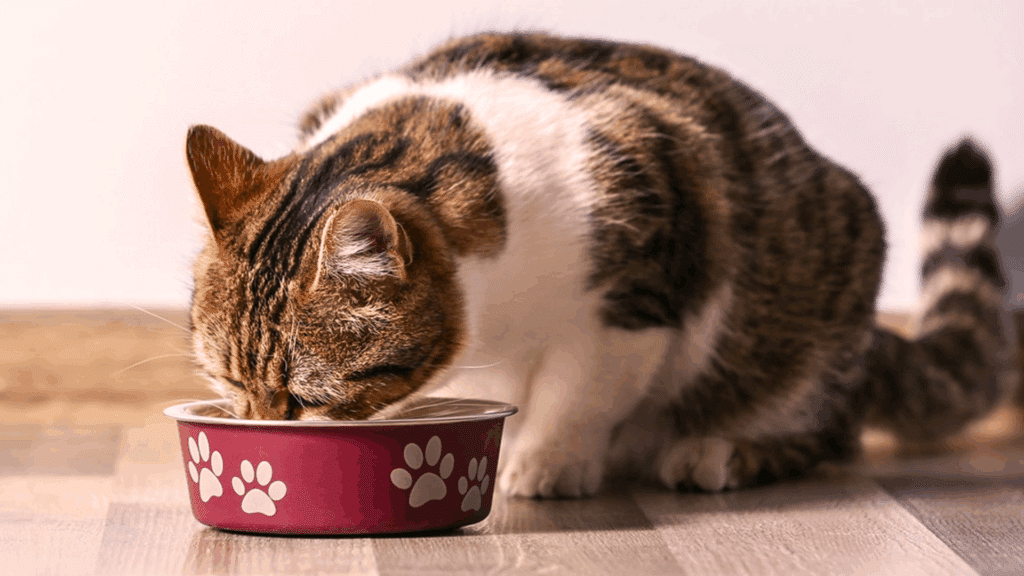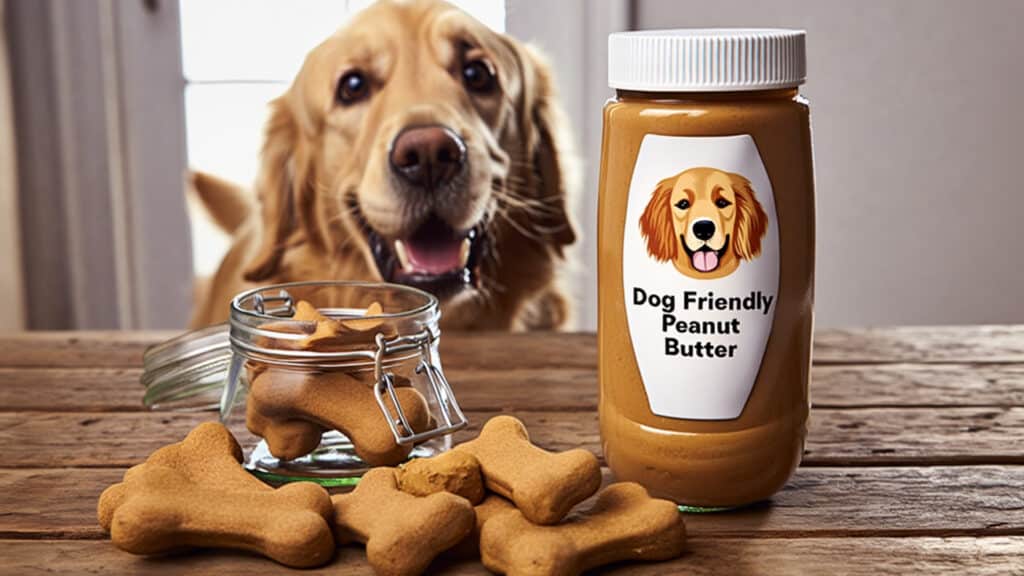Rabbit owners love giving treats; it’s an easy way to bond, reward good behavior, or just see that happy little nose twitch. But not every treat is good for your rabbit’s health.
Some snacks can cause stomach trouble, weight gain, or even long-term problems if given too often.
This article covers everything you need to know about treats and your rabbit’s well-being. You’ll learn:
- What kinds of treats are safe and healthy
- Which ones to avoid completely
- How often should you give them
The goal is simple: to help you make better choices so your rabbit stays healthy and happy.
By the end, you’ll understand how treats fit into a balanced diet and how to use them without risking your bunny’s health.
The Role of Treats in a Balanced Rabbit Diet
When I give my rabbit a treat, it’s usually to build trust or reward good behavior, not to fill them up. Treats should be a very small part of your rabbit’s diet, not something they get every day in large amounts.
A healthy rabbit diet includes mostly fresh hay, plus some leafy greens, a few pellets, and clean water.
Treats are like snacks for us; fun but not essential. You should choose treats carefully, picking natural options like small pieces of fruit or herbs instead of sugary or processed ones.
Never replace regular meals with treats, because your rabbit needs fiber-rich hay and greens to stay healthy.
Keeping treats limited and thoughtful helps your rabbit enjoy them without losing their balance in nutrition or health.
Safe Treats for Rabbits
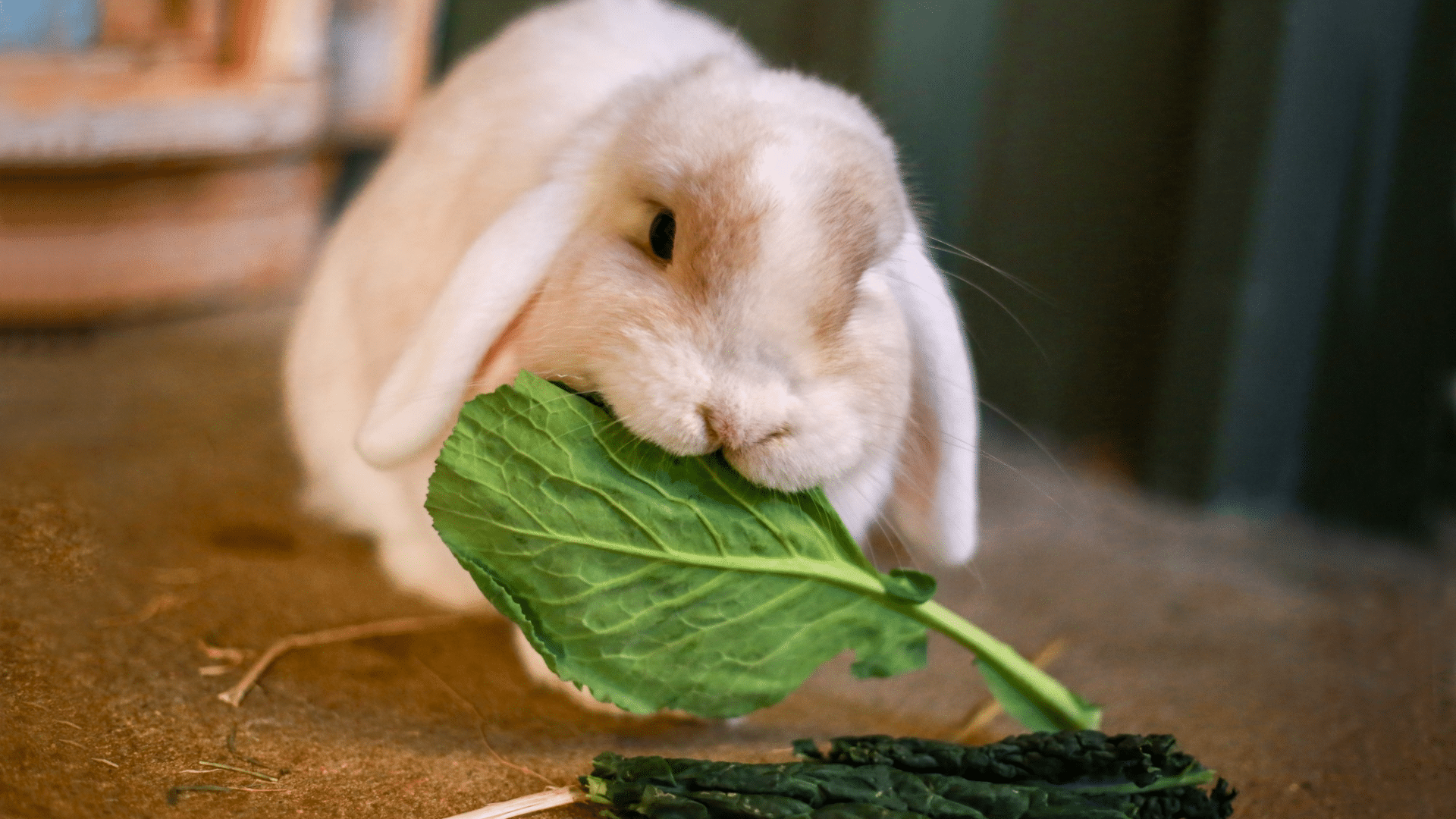
Rabbits can enjoy treats, but only the right kinds in the right amounts. These are some safe, healthy options you can give without harming their diet.
1. Fresh Fruits and Vegetables
A few fresh fruits and veggies can make great treats. Small pieces of apple, carrot, or banana are fine once in a while. I like giving my rabbit thin slices so it doesn’t upset their stomach.
You should keep portions tiny and occasional, since too much sugar can cause problems.
Leafy greens like cilantro, parsley, or kale also work well. Always wash them before feeding. By keeping servings small, you give your rabbit a safe treat without affecting their main diet.
2. Herbs and Natural Greens
Rabbits love herbs, and they’re one of the safest options you can choose.
Fresh mint, basil, and dill are all healthy and low in sugar. I often rotate between different herbs so my rabbit doesn’t get bored. You can do the same, just offer a small handful.
Herbs help with digestion and add variety without harming their health. Avoid any that are dried with added flavor or salt, stick to fresh, clean herbs only.
3. Store-Bought Treats
Not all packaged treats are bad, but you need to check ingredient labels carefully. I always look for short ingredient lists with no added sugar, corn, or dairy. You should do the same.
Choose treats made with real fruits or vegetables and avoid anything with bright colors or strong smells.
Simple, natural ingredients are best. Even with store-bought treats, give small amounts only. A tiny piece now and then is enough to make your rabbit happy and keep them healthy.
Treats to Avoid Giving to Your Rabbit
Some foods may seem harmless but can seriously hurt your rabbit’s health. Below are treats you should always avoid and what to do if your rabbit eats something unsafe.
1. Sugary and Processed Foods
Chocolate, candy, and baked goods might look like small snacks, but they can be very harmful to rabbits.
I never give these because they’re high in sugar and artificial ingredients that rabbits can’t digest. You should also avoid bread, crackers, and cereal.
These foods lack fiber and can cause bloating, soft stools, or gut stasis. Processed foods also upset the balance of good bacteria in their stomach.
If your rabbit accidentally eats something sugary or processed, watch for signs like gas, loss of appetite, or fewer droppings, and call your vet right away. Quick action helps prevent bigger problems.
2. High-Fat or Dairy-Based Snacks
Foods like cheese, yogurt drops, and chips might seem like fun treats, but they’re not safe for rabbits.
I’ve learned that rabbits don’t have the enzymes needed to digest dairy, and fatty foods can cause serious stomach issues.
When rabbits eat these snacks, they may develop diarrhea, bloating, or even liver problems.
Remember, rabbits are herbivores built for hay and greens, not fat or dairy. Even if your rabbit seems to enjoy them, it’s best to stop right away.
If you notice soft stools, loss of energy, or a bloated belly after a fatty snack, remove the food and contact your vet for advice. It’s always better to be cautious than to risk your rabbit’s health.
3. Unsafe Fruits and Vegetables
Some fruits and vegetables that are fine for people can be toxic to rabbits. Onions, garlic, avocado, and rhubarb are the most dangerous and should never be offered, even in small amounts.
I always double-check new foods before feeding my rabbit, especially since certain plants can cause poisoning or digestive distress.
You should do the same; a quick search can save your rabbit from a painful reaction.
If your rabbit eats something unsafe, remove it, offer water and hay, and call your vet. Watch closely for signs like drooling, weakness, or changes in breathing.
Acting fast can make all the difference in helping your rabbit recover safely.
How Often Should You Give Your Rabbit Treats?
I usually give my rabbit treats a few times a week, but small daily bits can work if they’re natural and low in sugar. How often you give treats depends on your rabbit’s age, weight, and health.
Younger or overweight rabbits should have fewer treats, while active and healthy ones can handle a little more.
I remind myself that treats are extras, not essentials. Watch your rabbit’s droppings and eating to catch problems early.
If you see soft stools, less interest in hay, or a slower appetite, it’s a sign to cut back. Keeping portions small, about the size of a teaspoon, is usually enough.
Regular monitoring helps you keep your rabbit healthy while still enjoying special moments with them.
The Impact of Overfeeding Treats
Giving too many treats might seem harmless, but it can lead to real health issues for your rabbit. Here’s what happens when treats go from reward to problem, and how you can fix it.
- Weight Gain: Extra sugar and calories from frequent treats can cause weight gain, making your rabbit less active and more prone to joint problems.
- Digestive Issues: Too many treats can upset your rabbit’s gut, leading to soft stools, bloating, or even serious conditions like gut stasis.
- Picky Eating: Overfed rabbits may start ignoring hay, which is vital for digestion and dental health.
- Reduced Hay Intake: A full stomach from treats means less hay, lowering fiber intake and gut movement.
- Simple Fixes: Slowly cut back on treats and swap sugary snacks for herbs, greens, or hay-based options to restore balance.
Conclusion
I think treats are great when used the right way. They help you bond with your rabbit and make training easier. The key is moderation; a few healthy treats now and then are enough.
I like using small pieces of fruit, herbs, or leafy greens, and I always make sure hay and vegetables stay the main part of the diet.
Avoid sugary or processed snacks, as they can cause stomach issues and weight gain.
You don’t need to cut treats completely, just keep them small and rare. Treats should be rewards, not meals. When you choose wisely, your rabbit stays healthy and happy.
I’ve learned that a rabbit who eats well, moves often, and gets the right balance of food will always be more active and full of life.


